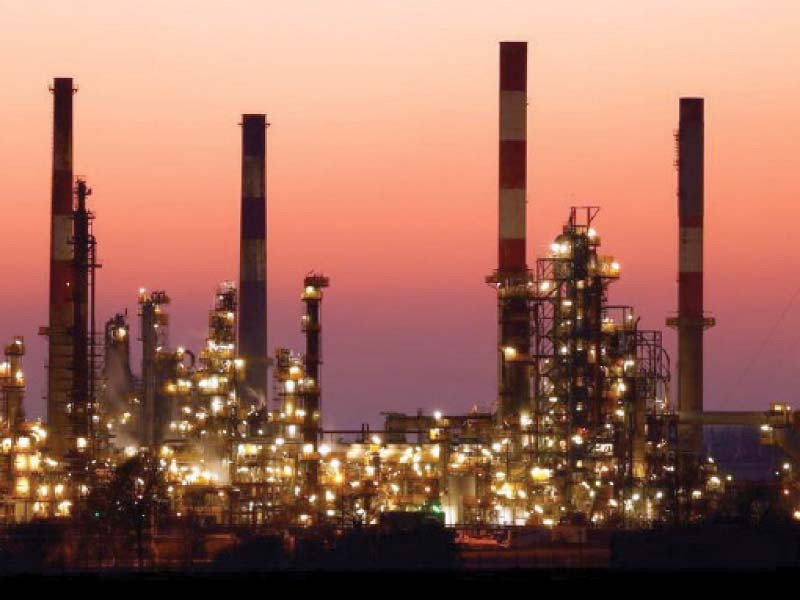
As a new oil refining policy could not be finalised for a couple of years during the tenure of Pakistan Tehreeke-Insaf (PTI) government, the oil refineries are now looking at the new government, hoping it will make swift headway and approve the much-awaited policy.
This will pave the way for boosting oil refinery production in the backdrop of diesel shortage in the global market following the RussiaUkraine war. US sanctions on Russian oil supplies have sparked a rise in global crude oil prices, which is also fuelling diesel scarcity. In this situation, stateowned oil marketing giant Pakistan State Oil (PSO) has faced trouble in securing diesel import contracts and has managed to import the fuel at higher premiums.
Earlier, the PTI administration kicked off work on a new oil refining policy in 2020 but the document became a shuttlecock between the petroleum ministry and the Cabinet Committee on Energy (CCOE). According to sources, some cabinet members pointed to a few issues in relation to a refinery, which prevented the CCOE from endorsing the policy. Some of the reservations have been addressed through the budget while some others remain unresolved, which are the key to initiating refinery upgrade projects for the production of environment-friendly fuels.
According to sources, a cabinet member had some business interest in a refinery, which had been hurt and became a stumbling block. Now, the refineries are counting on the new government, arguing that an oil refining plant could be upgraded with an investment of $4 billion to enhance the production capacity while a new refinery will require an investment of $10 billion. Refineries play a pivotal role in achieving the country’s strategic objectives, particularly ensuring sustainable supply of refined petroleum products.
The refineries operating in Pakistan are called basic refineries, or “topping or simple hydro-skimming” refineries in technical language, which need to upgrade to produce environment-friendly fuels of Euro V standard. Pakistan’s refineries produce 70% of the country’s diesel requirement and meet 30% of petrol demand. Since refining projects are capital-intensive, there is a need to woo investors through investment-friendly policies.
The industry claims that the refineries are wrongly accused of misusing the collection of deemed duty without understanding the relevant policy directives. Industry officials point out that the refineries were initially allowed to include customs duty (deemed duty) in the ex-refinery prices of high-speed diesel (HSD) and three other petroleum products but the duty was later restricted to the ex-refinery price of HSD only. Moreover, the full amount of deemed duty collection was not to be kept by the refineries rather the leftover receipts were to be deposited in a special reserve, which could be used for upgrading the refining plants.
Margins
The upheaval in the international oil market in the last decade or so has strained refining margins and put hydro-skimming refineries in a precarious situation. Over the last 20 years, the refineries have suffered a cumulative loss of around Rs60 billion. Owing to the extremely high capital injection requirement, tight margins and lack of growth opportunities, there has been thin new investment in the sector in the past 50 years.
Only Pak-Arab Refinery Limited (Parco), with 60% government shareholding, and Byco plants have been installed. With slack furnace oil demand, the refineries are running at only 60-65% of the capacity and have recently been forced to shut down. Keeping in view such factors, the work on a new refining policy began in early 2020 with input from the refineries and other stakeholders, but its approval was delayed due to frequent changes in the petroleum ministry.
There has been no progress in the last two months and it seems that the upgrading of refineries and attracting new investment in the sector are no more a priority of the government. Industry players emphasise that the refining policy is the need of the hour to help the government in achieving its strategic objectives including compliance with environmental protocols. Under the policy, it will be mandatory for the refineries to upgrade their plants and produce the minimum Euro V standard fuels. At the same time, the policy will provide incentives for investment of billions of dollars in mega refinery projects.
Commenting on the situation, Pakistan Refinery Limited (PRL) Board of Directors Chairman Tariq Kirmani argued that PRL and other refineries were vital for the oil supply chain in Pakistan as the country could not afford closure of any of the existing refineries. “New policy will lead to the inflow of $4 billion into upgrading the existing refineries and attract $10 billion investment for establishing a new refinery,” he voiced hope. He stressed that PRL was important for PSO, which was the largest oil marketing company and acquired PRL with the sole intent of backward integration to ensure uninterrupted supplies from a refinery, rather than relying solely on imports.


1723278472-0/BeFunky-collage-(4)1723278472-0-165x106.webp)


1719564405-0/BeFunky-collage-(19)1719564405-0-165x106.webp)

1732486769-0/image-(8)1732486769-0-270x192.webp)










COMMENTS
Comments are moderated and generally will be posted if they are on-topic and not abusive.
For more information, please see our Comments FAQ